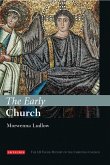David Hempton's history of the vibrant period between 1650 and 1832 engages with a truly global story: that of Christianity not only in Europe and North America, but also in Latin America, Africa, Russia and Eastern Europe, India, China, and South-East Asia. Examining eighteenth-century religious thought in its sophisticated national and social contexts, the author relates the narrative of the Church to the rise of religious enthusiasm pioneered by Pietists, Methodists, Evangelicals and Revivalists, and by important leaders like August Hermann Francke, Jonathan Edwards and John Wesley. He places special emphasis on attempts by the Spanish, Portuguese, French, Dutch and British seaborne powers to export imperial conquest, commerce and Christianity to all corners of the planet. This leads to discussion of the significance of Catholic and Protestant missions, including those of the Jesuits, Moravians and Methodists. Particular attention is given to Christianity's impact on the African slave populations of the Caribbean Islands and the American colonies, which created one of the most enduring religious cultures in the modern world.
Throughout the volume changes in Christian belief and practice are related to wider social trends, including rapid urban growth, the early stages of industrialization, the spread of literacy, and the changing social construction of gender, families and identities.
Throughout the volume changes in Christian belief and practice are related to wider social trends, including rapid urban growth, the early stages of industrialization, the spread of literacy, and the changing social construction of gender, families and identities.









